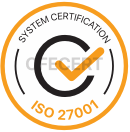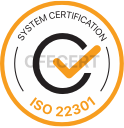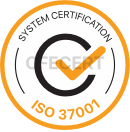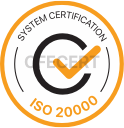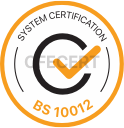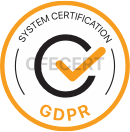Supplier audits in the food industry are critical to ensure food safety, quality and sustainability standards. These audits are carried out to verify the suitability and safety of products and processes at every stage of the supply chain.
1. Objectives of Supplier Audits
Safety: To ensure that products reach the consumer safely.
Quality: To verify that products conform to established quality standards.
Compliance: To ensure compliance with local and international regulations and standards.
Risk Management: Identifying and minimising potential risks in the supply chain.
Sustainability: To ensure compliance with environmental and social responsibility standards.
2. Types of Audit
Initial Audit: Initial audit to evaluate and approve new suppliers.
Regular Audits: Periodic review of existing suppliers.
Specialised Inspections: Targeted audits performed when a specific problem or risk situation arises.
3. Audit Process
Preparation: Establishing the audit plan, gathering information about the supplier and identifying the audit team.
Audit: Visiting the supplier facility, examining processes and products, interviewing employees and checking required documentation.
Evaluation: Analysing the audit findings and assessing the supplier’s performance.
Reporting: Reporting of audit results and providing feedback to the supplier.
Monitoring: Checking whether the detected non-conformities have been eliminated.
4. Auditing Standards and Certifications
BRC (British Retail Consortium): Food safety and quality management standards.
FSSC 22000 (Food Safety System Certification 22000): Food safety management system standard.
IFS (International Featured Standards): Quality and safety standards for food and logistics processes.
ISO 22000: International standard for food safety management systems.
HACCP (Hazard Analysis and Critical Control Points): Hazard analysis and critical control points system.
GMP (Good Manufacturing Practices): Good manufacturing practices.
5. Compliance and Certification
Suppliers can participate in various certification programmes to demonstrate compliance with set standards. These programmes are conducted by independent auditors and verify suppliers’ compliance with certain standards.
Food businesses can develop customised audit programmes based on specific needs and risks in the supply chain. These programmes allow for continuous monitoring and improvement of suppliers’ performance.
6. Role of Technology
Modern technology plays an important role in supplier audits, just some of which are as follows.
Data Analytics: Analysing audit data and identifying risks.
Blockchain: Improving supply chain transparency and traceability.
Mobile Applications: Streamlining and accelerating audit processes.
7. Supplier Relations
Successful audit programmes require strong and trusting relationships with suppliers. Open communication, ongoing training and co-operation increase the effectiveness of audits.
Sample Applications;
Nestlé Nestlé has a rigorous approach to supplier audits. The company expects its suppliers to comply with high quality and safety standards and conducts regular audits. Nestlé’s audit process starts from the supplier selection stage and focuses on continuous improvement.
Unilever: Unilever places great importance on sustainability and ethical trade principles throughout its supply chain. The company also assesses sustainable agricultural practices and social responsibility standards in supplier audits. Unilever ensures continuous improvement by establishing long-term relationships with its suppliers.
Danone Danone bases its supplier audits on international standards such as HACCP (Hazard Analysis and Critical Control Points) and ISO 22000. The company aims to raise food safety and quality standards by co-operating with its suppliers.
Supplier audits in the food industry are critical for consumer safety, product quality and legal compliance. Effective and regular execution of these processes supports the long-term success and sustainability of businesses.
Companies need to cooperate with experts who offer more professional services in this regard. As CFECERT, if you would like to receive more information from our professional team on certification and training issues, please contact us at info@cfecert.co.uk.



